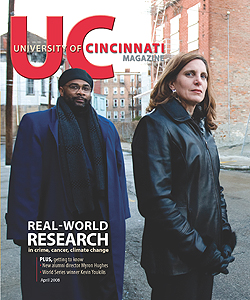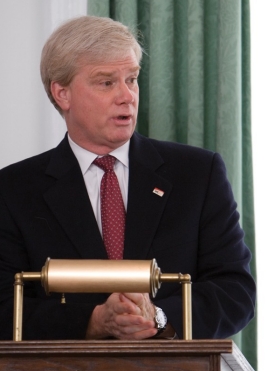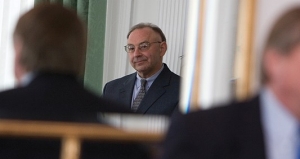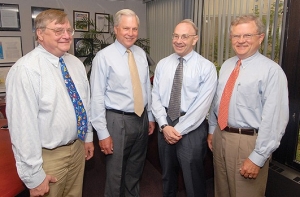by Michael Carroll, president of the UC Foundation
The University of Cincinnati is in the final stages of rolling out the largest fundraising campaign in its history. On Nov. 27, the UC Board of Trustees, on recommendation from the UC Foundation Board, approved a campaign goal of $800 million by June 30, 2013. Slated for public kickoff this fall, this campaign will benefit scholarships, educational initiatives and resource needs throughout all the university's campuses.
That doesn't mean, however, that we're waiting until fall to begin the work. While decisions are being finalized for a campaign brand and funding initiatives, the "quiet phase" of this campaign has already seen more than $300 million committed by alumni, friends, companies and foundations around the world.
Our co-chairs for this campaign are Buck Niehoff, JD '72, of Peck, Shaffer and Williams, LLP, and Otto Budig, Bus '56, president of the Budco Group.
Buck was a trustee of the UC Foundation before his appointment to the University of Cincinnati Board in 2002. He has served as a member of the College of Law Board of Visitors and the College of Nursing Board of Advisors, and his personal generosity has enriched programs throughout the university for more than three decades.
Otto also has made a difference for his university, with service as a UC Foundation trustee and support that's strengthened scholarships, improved campus green spaces and enriched programs. Initiatives that have benefited from his long-standing support include the College of Medicine, the College of Business, the College-Conservatory of Music and athletics -- almost 40 years worth of "more."

 Issue Archive
Issue Archive

